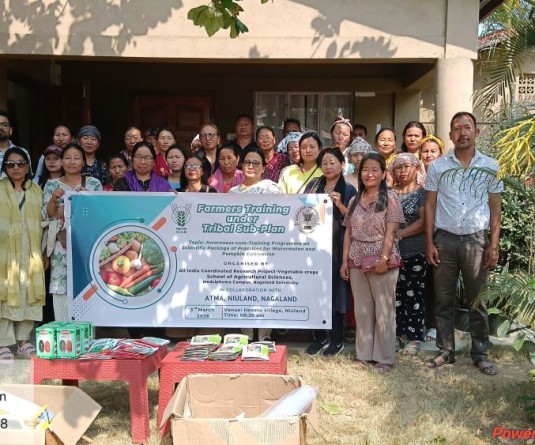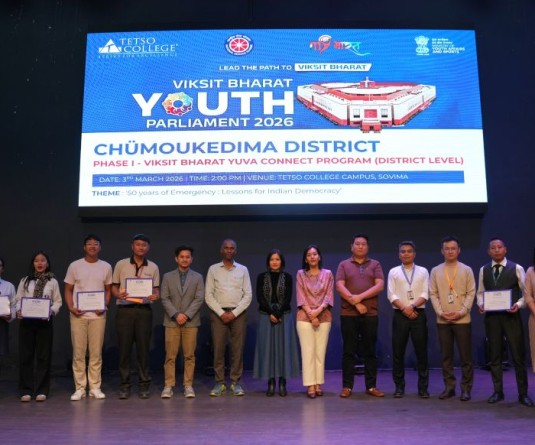
Impur, July 2 (MExN): The Ao Baptist Arogo Mungdang (ABAM) today alleged an ulterior motive to erode the cultural autonomy of the tribal and diluting the unique constitutional rights and protections enjoyed by the tribal Christians and other religious minorities in Nagaland.
Asserting firmly that the religious freedom is the spirit of the Indian Constitution whereas Article 44 (UCC) is an optional matter under Directive Principles of State Policy, the ABAM declared that the “persistent efforts to implement UCC is just the tip of the iceberg because the whole process of detribalisation and displacement will continue more rigorously.”
ABAM, the largest Church Association under Nagaland Baptist Church Council (NBCC) in terms of membership, further stated that the demand for UCC is a deliberate attempt made by the “government to destroy the freedom of the citizens particularly the minorities in India.”
The ABAM strongly condemns such initiatives by the ruling government of India as it not only threatens the unity and integrity of the nation but infringe the freedom of the Christian community in particular, stated a press release issued by the ABAM Executive Secretary, Rev Dr Prof Mar Pongener and President, Rev Temshi Longkümer.
While justifying their opposition, the Association highlighted that the emphasis on implementing the UCC, which calls for a unified law for the entire nation regarding marriage, divorce, inheritance, and adoption for all religious communities, was a key agenda in the Bharatiya Janata Party's (BJP) 2019 Lok Sabha election manifesto.
It further highlighted that with more than 200 tribes living in North East India, the tribal are generally known by their feeling of community-centered life in every sphere of their activities whether it be the social organisations or the democratic way of administration. On the other hand, India, though existing as a nation-state for the last many years has been struggling to find the ‘Central Integrative Force’ to bind people together as a ‘Nation,’ it maintained.
“The Hindutva Movement is understood to be a continuation in the attempt to find the religio-cultural basis of the nation of India by shifting its allegiance from Secularism to the Religious Nationalism of Hindutva,” it added.
However, the ABAM reminded that in a pluralistic context like India, adherents of different religions have been accommodated for centuries following the teachings of their respective religions.
“The proposed notion to introduce UCC is not only surprising but Article 44 of the Constitution is utilised to uphold a particular religious group on one hand and on the other, misleading the rest in total chaos,” it argued.
The UCC has the potency to undermine the cultural fabric of the country and impinge upon the religious freedom and cultural diversity cannot be compromised to the “extent that our urge for uniformity itself becomes a reason for threat to the territorial integrity of the nation,” the ABAM added.






